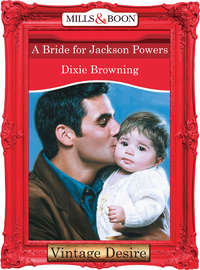
Полная версия
Social Graces
The calls had ended when the police had put taps on all three phone lines. Not until recently had she wondered why they’d ceased. How could the callers have known their calls could be traced?
The calls had stopped, but not the nightmares. Both asleep and awake, she had replayed the scene that morning back in late September a thousand times. A pale, stiff-faced Charlie stepping back from the wide front door to allow the two men inside. Her father emerging from his study and carefully closing the door behind him. Belinda, one plump hand covering her mouth as she stood in the dining-room doorway.
In less than twelve hours her father had been dead. Pestered by reporters, auditors and men in bad suits who seemed to think they had every right to invade her home, Val had tried desperately to cram her emotions deep inside her and lock the door. When confronted, she’d quickly learned to answer with one of several replies that included, “I don’t know,” “No comment,” and “My father is innocent.”
A part of her was still in hiding, but she had to know the truth, even in the unlikely event that the truth turned out to be not what she wanted to hear. Back in Greenwich she’d been too close for any real objectivity. Here, once she settled down to it, she would be able to think clearly. Then at least the callers who wanted to know where their money was would have an answer, even if it was one that wouldn’t do them any good.
Valerie Bonnard slept heavily that night. Sometime before daybreak she awoke, thinking about the mouse she’d seen and all the others she’d heard and smelled. Were mice carnivorous? They were grain-eaters, weren’t they?
Oh, God…now she’d never get back to sleep.
Eyes scrunched tightly shut, she rolled over onto her stomach. On her own firm, pillow-top mattress, prone had been her favorite sleeping position, never mind that her face would be a mass of wrinkles by the time she reached forty. On a mattress that sagged like a hammock, it was a toss-up as to which she’d succumb to first—strangulation or a broken back.
Grax, if this was your bed, no wonder your back was rounded, she thought guiltily. Her great-grandmother’s given name had been Achsah, pronounced Axa. As a child, Val had shortened it to Grax. From her one brief visit, she remembered the old woman with the laughing blue eyes and short white hair. Wearing a duckbill cap, a cotton print dress and tennis shoes, she’d been working in the yard when they’d driven up. On their way to Hilton Head, her parents had taken a detour along the Outer Banks so that Lola, Val’s mother, could introduce them to her grandmother.
To a child of seven, the trip had seemed endless. Her parents had bickered constantly in the front seat. Odd that she should remember that now. Looking back, it seemed as if it had been her mother who was reluctant to take the time, not her father.
They’d spent the night at a motel, but they’d eaten dinner in the small white house in the woods. She remembered thinking even before she’d smelled the gingerbread that it looked like Aunty Em’s house in the Wizard of Oz.
Grax had served boiled fish—she’d called it drum—mixed with mashed potatoes, raw onions and bits of crisp fried salt pork. As strange as it sounded, it had turned out to be an interesting mixture of flavors and textures.
Her mother hadn’t touched it. Her father had sampled a few forkfuls. Val, for reasons she could no longer recall, had cleaned off her plate and bragged excessively. She’d eaten two squares of the gingerbread with lemon sauce that had followed.
That had been both the first and the last time she’d seen her great-grandmother. Two years later her parents had separated. Her father had been given custody—had her mother even asked? At any rate, Lola Bonnard had chosen to live abroad for the next few years, so visitation had been out of the question. Val had gone through the usual stages of wondering if the split had been her fault and scheming to bring her parents together again.
She would like to think her mother had attended Grax’s funeral but she really didn’t know that, either. Her relationship with Lola Bonnard had never been close, even before the divorce. Since then it had dwindled to an exchange of Christmas cards and the occasional birthday card. It had been her father’s lawyer who’d handled Grax’s bequest, arranging for someone to manage the house as a rental. At the time, Val had been living in Chicago working for a private foundation that funded shelters and basic health services for runaway girls.
“I’m sorry, Grax,” she whispered now, burdened with a belated sense of guilt. “I’m embarrassed and sorry and I hope you had lots and lots of friends so that you didn’t really miss us.”
No wonder the house felt so cold and empty. How many strangers had lived here since Grax had died? There was nothing of Achsah Dozier left, no echoes of the old woman’s island brogue that had fascinated Val at the time. No hint of the flowers she’d brought inside from the Cape jasmine bushes that had once bloomed in her yard. Lola had complained about the cloying scent and without a word, Grax had got up and set the vase on the back porch.
Val made a silent promise that as soon as she got the house cleaned and repaired, she would see what could be done with the yard.
But first she had to go through those files, discover what it was her father had wanted her to find there, and clear his name. Frank Bonnard had been a good man, an honest man, if something of an impractical dreamer. He didn’t deserve what had happened to him.
Two
John Leo MacBride studied the encrusted mass of plates and cutlery that had been brought up from one of the Nazi submarines sunk during the Second World War off the New England coast. He considered leaving a few as he’d found them instead of soaking them all in an acid solution, prying them apart and cleaning them up. The before-and-after contrast would make a far more interesting display at the small museum that had commissioned the dives.
He glanced at the clock on the wall of his stepbrother’s garage where he’d set up a temporary workspace a couple of months ago when Will had called, asking for help. So far, about all he’d been able to do was to keep Macy, Will’s wife, from making matters worse. That and stay on the heels of his lawyer, who might as well be back chasing ambulances for all the good he’d done his client.
Mac had been standing by chiefly to offer moral support, which was more than Macy was doing. Instead, she seemed almost to be enjoying her role as the wife of a man who was currently awaiting trial for embezzlement. She’d had her hair highlighted two days after Will had made bail, and since then had managed to get a fair amount of facetime with the media.
Bonnard’s daughter, by contrast, had avoided the worst of the feeding frenzy. He could think of a couple of reasons why she might have managed to avoid the spotlight, but social clout didn’t mean her old man wasn’t guilty as sin.
Will’s only crime, Mac was convinced of it, was being too trusting. Less than a year after being given a partnership, Will had gone down in the corporate shipwreck along with Frank Bonnard, founder and CEO of the privately held financial consulting firm. Bonnard had paid for his sins by dying of a massive heart attack almost before the investigation got underway.
Will had hired an inept lawyer—an old law-school classmate. A lawyer himself, as well as a CPA, he’d been planning to present his own defense when Mac had talked him out of it. He was sorry now that he had.
But the money was still missing, and after nearly three months, the trail was murkier than ever. Current thinking was that funds had been bled off gradually over a period of years rather than months, probably funneled from one offshore account to another until it was impossible to trace either the source or the destination.
No one was talking. Bonnard because he was dead, Will because he was clueless, his lawyer because if the jerk had ever passed a bar, it wasn’t a bar that served drinks. The guy was a lush.
Mac had tried his own brand of logic on the case, running down the short list of suspects. The Chief Financial Officer, Sam Hutchinson, had apparently been cleared. Currently on an extended leave of absence to be with his terminally ill wife, he’d been the logical suspect. His computers, his files—everything that bore his fingerprints, had been impounded. He’d come through it all clean. Will liked the guy. Only hours before he’d died, Bonnard himself had vouched for him.
As for Bonnard, late founder and CEO of Bonnard Financial Consultants, not even death had offered protection. Once the flock of outside auditors dug in, both he and Will had been swept up in the dragnet.
It was shortly after that that Mac had moved his base of operations from an apartment in Mystic, near the aquarium, to Will’s Greenwich home. He was currently living in the small apartment over the garage, finishing up a few tasks from his last commissioned dive.
BFC was a small regional firm, nothing like some of the big outfits that had hit the reef over the past few years. Not that the impact on the victims was any less devastating, as BFC had specialized in handling retirement funds for a number of small area businesses.
To give him credit, back when the economy had taken a dive a few years ago, Bonnard had borrowed heavily against his fancy house and pumped the funds back into the company, a fact that had quickly come to light. It didn’t exactly fit the profile of a high-level embezzler to Mac’s way of thinking, unless at the same time he’d been shoring up the business with one hand to allay suspicions, he’d been bleeding off profits with the other. Slick trick, if you could pull it off.
Bonnard’s only heir was a daughter. The feds had run her through the washer just as a precaution, but so far as anyone knew she had never been involved in any way with her father’s business. Will was convinced she wasn’t a player.
Will’s wife, Macy, wasn’t so generous, but then, Macy was inclined to be jealous of any attractive woman, especially one who’d been born with the proverbial silver spoon. Even Mac had to wonder if the investigators had gone easy on the daughter because of her looks and her social position. He wasn’t sure how big a part sympathy played in such a case, but the fact that her father had died on his daughter’s thirtieth birthday might have had an effect. The press had made it a big deal. He remembered seeing that same pale, stricken face—flawless cheekbones, haunted gray eyes—replayed over and over on every recount during the week immediately after Bonnard’s arrest—an arrest that had been followed almost immediately by his death.
Ironic to think that Bonnard might have got clean away if it hadn’t been for a junior accountant who had mistakenly mailed out 1099s for a tax-free municipal fund to a number of clients and been forced to do amended forms. Evidently the matter had landed on the desk of a snarky IRS agent. One question had led to another; an outside auditor had been called in, and the whole house of cards had come crashing down. Bonnard had gone to his dubious reward, leaving his junior partner to take the fall.
That’s when the scavenger hunt had shifted into high gear, drawing in the FBI, the Financial Crimes Unit, the state auditor’s department and the IRS, not to mention a bunch of media types with Woodward and Bernstein complexes. But with all that manpower, they were no closer after nearly three months to locating the missing money, much less tracing it back to its source.
Which damn well wasn’t Will Jordan.
Mac’s single bag was packed, the Land Cruiser’s tank topped off. He was ready to head south the minute Shirley, his hacker friend, gave the word. Not that hacking was even needed in this case, as public records were open to everyone who knew, geographically speaking, where to look. But when he needed information in a hurry, it helped to know someone who could make a computer sit up and sing the “Star Spangled Banner.”
Valerie Bonnard’s only asset of record at this moment was a modest trust fund that wouldn’t kick in for another five years, and a small property she’d inherited in a place called Buxton, on North Carolina’s Outer Banks. Mac was generally familiar with the area—what marine archeologist wasn’t familiar with the notorious Graveyard of the Atlantic? There was even a new museum by that name on the island. From what he’d been able to find on the Internet, most of the island that hadn’t been taken over by Park Service or National Wildlife had been developed over the past few decades.
Ms. Bonnard, using a dummy corporation, could have been investing steadily in some high-dollar real estate down there. Shirley hadn’t been able to tie her to anything specific, but it would have been a smart move on the part of La Bonnard, especially considering the erratic stock market. Whether or not she’d socked away the missing funds in investment-grade real estate, it was as good a place to start as any.
One of the perks of being a freelance marine archeologist was large chunks of unregulated time. Unlike Will’s, Mac’s lifestyle was both portable and low maintenance, although Will’s was probably about to change even more drastically in the near future. Mac had a feeling that once this nightmare was over, his stepbrother might have lost more than a junior partnership, an upscale house and a few club memberships. Macy was looking restless now that the publicity had died down. She just might walk, which would be no great loss in Mac’s estimation.
The drive took two days, allowing for frequent breaks, in his fourteen-year-old, rebuilt Land Cruiser. Mac spent the first night in the Norfolk region. Late in the afternoon of the second day, having spent a few hours in one of the area’s maritime museums, he pulled into a motel in Buxton and booked a room, intending to spend the first half hour flexing various muscles under a hot shower.
At age thirty-seven he was beginning to realize that stick shifts were hell on left knees. A friend had warned him, but he wasn’t about to trade in his customized vehicle, with the locked compartments designed specifically to hold his diving gear and the ergonomic seats that helped minimize fatigue. It might take him a bit longer to bounce back after a long drive, but normally he looked on the bounce-back time as a chance to catch up on his reading. He’d even tossed in a few books at the last minute, in case he had any down time. Not that he planned to hang around any longer than it took to uncover a lead that would shift the focus off Will.
If Mac had a weakness—actually, he admitted to several—it was books. Aside from diving gear, books were his favorite indulgence. Mostly history. The stuff fascinated him, always had. But reading could wait until he’d pinned the Bonnard woman down and got the information he needed.
A fleeting image of him pinning La Bonnard down on a big, soft bed drifted across his field of vision. He blinked it away before it could take root.
The desk clerk was young and inclined to be chatty. It took Mac all of two minutes to get the location of the residence of the late Achsah Dozier, as this wasn’t the kind of place where street addresses did much good.
“I didn’t really know her, I’ve only been here a few years,” the young woman said. She’d looked him over and touched her hair when he’d walked into the lobby, but evidently decided on closer examination that he wasn’t that interesting.
Not altogether surprising. He still had all his hair and teeth, and he’d been asked more than once if he worked out at a gym. He didn’t. The type of work he did tended to develop the legs and upper body while it pared down the waist and hips. On the other hand, his face had once been compared to a rock-slide.
Besides, he had a couple of decades on the bubblegum-chewing kid, who was saying, “I think Miss Achsah used to live on the Back Road.”
In certain pockets of population, he’d learned, Miss was an honorary title given to women over a certain age, regardless of marital status. When the first name was used, it generally indicated that there were a number of women with the same surname.
“You go out the door and turn left—” The young clerk continued to talk while Mac mentally recorded the data. “I heard her house was rented out after she died, but I don’t think there’s anybody living there now. Marian Kuvarky over at Seaview Realty could tell you.”
Something—call it a hunter’s instinct—told him that the Bonnard woman was holed up in her great-grandmother’s house, probably keeping a low profile until things cooled down. If she had a brain under all that glossy black hair she had to know she was probably still considered “of interest” by certain authorities, even if they hadn’t found anything to hold her on.
The smart thing would have been to go someplace where she had no ties and wait until the heat died down. After say, six months—a year would be even better—with what she had stashed away in an offshore account, she could settle anywhere in the world.
With what she allegedly had stashed away, he corrected himself reluctantly. So far, he was the only one doing the alleging, but then, he had a personal stake. Will hadn’t embezzled a damned thing. In the first place, his stepbrother couldn’t lie worth crap, and in the second place, if he could’ve got his hands on that kind of money, his wife would’ve already spent it. Macy could easily qualify for the world shopping playoffs.
Mac was good at extrapolations. As a marine archeologist, it was what he did best. Study the evidence—the written records, plus any prevailing conditions, political or weatherwise, that might affect where a ship had reportedly gone down. Not until he had thoroughly examined all available data and given his instincts time to mull it over was he ready to home in on his target.
In this case the field had officially narrowed to two suspects: Bonnard and Will. Eliminate Will and that left only Bonnard—or in this case, Bonnard’s heir. The auditors were still digging halfheartedly, but the case had been shoved to the back burner as new and bigger cases had intervened in the meantime. Which left poor Will dangling in the wind, his next hearing not even on the docket yet.
Mac made up his mind to wait until morning to scope out the house. He even might wait another day before making contact, but no longer than that. He needed answers. Will wasn’t holding up well. He’d lost weight, he had circles under his eyes the size of hubcaps, and his marriage was falling apart.
Timing was crucial. He didn’t want to spook her, but neither could he afford to wait too long. The feds hadn’t been able to find anything to hold her on, not even as a witness, but to Mac, the logic was inescapable. That damned money hadn’t just gone up in smoke. Someone close to Bonnard held the key. The man had been divorced more than twenty years; he’d never remarried. So far as anyone knew, he’d never even had a mistress. A few brief liaisons, but none that had lasted more than a few months. The press had gone after the ex-wife, now reportedly in the process of shedding husband number three. There was no love lost between her and Bonnard, so if she’d known anything it would probably have come out. Another dead end.
By process of elimination, it had to be the daughter. Millions of bucks didn’t just slip through a crack in the floor like yellow dust in a gold-rush saloon. Someone was waiting for the heat to die down to claim it. And he knew who the most logical someone was.
Valerie Stevens Bonnard, Mac mused. He knew what she looked like, even knew what make car she drove. He’d seen her around town a couple of times when he’d been in the area visiting Will last spring. Cool, flawless—sexy in a touch-me-not way. Talk about your oxymorons.
He’d even spoken to her once. Will had gone to some BFC function at the country club while Mac was spending a few days in Greenwich on his way back from DC last summer. He’d forgotten his prescription sunglasses and called to asked Mac to drop them off.
Mac had been changing the fluid in his transmission when he’d answered the phone and hadn’t bothered to change clothes, intending to leave the sunglasses with an attendant. Driving the same weathered Land Cruiser, he had just squeezed into a parking place between a Lexus and an Escalade when Ms. Bonnard drove up in Mercedes convertible. Evidently she’d mistaken him for one of the groundskeepers, because she’d informed him politely that service parking was in the rear. She’d even smiled, her big gray-green eyes about as warm as your average glacier.
So yeah, he knew what she looked like. There was no chance she would recognize him now though. She’d summed him up and dismissed him in less than two seconds flat.
Val was good at any number of things, among them organizing intimate dinner parties for fifty people and overseeing thousand-dollar-a-plate fund-raisers. She excelled at tennis, skiing and hanging art shows. She’d been drilled in what was expected of someone with her privileged background from the time she could walk.
Now, faced with an oven that was lined with three inches of burned-on gunk she burst into tears, only because cursing was not yet among her talents.
She wiped her eyes, smearing a streak of grime across her cheek and glared at the rattling kitchen window. There had to be a way to keep the wind from whipping in through the frames. How had the previous tenants managed to stay warm?
They hadn’t, of course. Probably why they’d moved out, leaving the place in such a mess. Three of the rooms had air-conditioner units hanging out the windows. No one had bothered to remove or even to cover them, much less plug all the cracks around them. She had stuffed the cracks with the plastic bags from her first shopping foray, for all the good it did.
Neither the space heaters nor the ugly brown oil heater were a match for the damp chill that seemed to creep through the very walls. Hadn’t anyone in the South ever heard of insulation?
She added a roll of clear plastic and a staple gun to the growing shopping list that included more of the sudsy cleanser, another six-pack of paper towels and a few more mousetraps. The plastic would have to serve until she could afford storm windows.
After hours spent scrubbing, most of the downstairs rooms plus her bedroom and the upstairs bath smelled of pine cleanser instead of mice and mildew. She’d ended up buying live traps instead of wire traps, even though they’d cost more, because while she refused to share her new home with rodents, she wasn’t into killing. Spiders, roaches and mosquitoes, perhaps, but nothing larger.
Her new lifestyle, she was rapidly discovering, called for a drastically new mindset. Belinda and Charlie, her father’s housekeeper and man-of-all-work, had spoiled her, she’d be the first to admit. Now, instead of taking her comfort for granted, she was forced to acquire a whole battery of new skills. In the process she was also acquiring an impressive array of bruises, splinters and broken fingernails, not to mention a rash on her left hand from the rubber gloves she’d tried to wear. French manicures and sleek hairstyles were definitely things of the past. After the second day, she hadn’t bothered to apply makeup, only a quick splash of moisturizer and, when she remembered it, lip balm. Instead of her usual chignon, she wore her hair in a single braid that, by day’s end, was usually frazzled and laced with cobwebs—or worse.
On the plus side, she was too busy to waste time crying. Hard work was turning out to be a fair remedy for grief. Somewhat surprisingly she was even making a few friends. Marian Kuvarky at the real estate office, the clerk at the hardware store who had advised her on mousetraps, and the friendly woman at the post office where she’d rented a mailbox. She’d asked questions of all of them, everything from where to find what on the island to what kind of weather to expect.
“Expect the unexpected, I guess,” the postal worker had said, “This time of year we might get seventy-five degrees one day and thirty-five the next. Not much snow, but lawsy, the winds’ll sandblast your windshield before you know it. By the way, did I tell you that you have to come here to collect your mail? None of the villages on the island has home delivery.”









